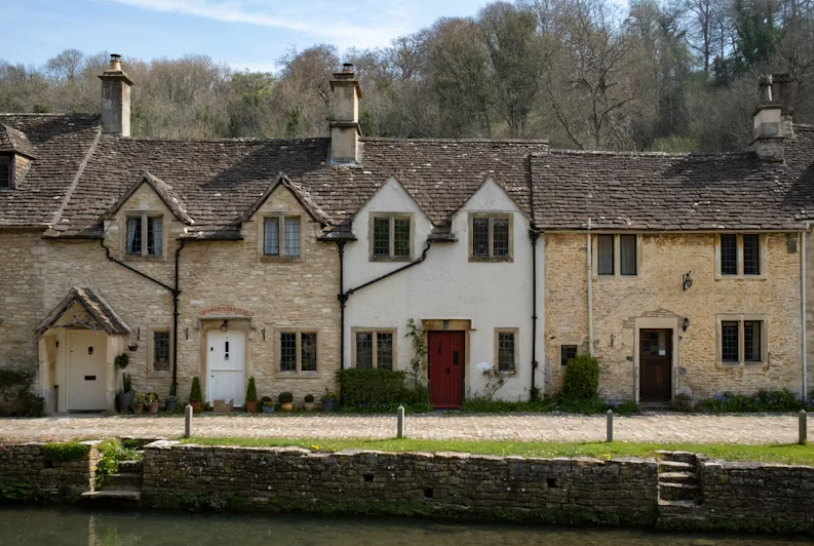Buying a home and securing a mortgage is one of life’s biggest milestones and one that can bring about a significant amount of stress. Multiple financial assessments, heaps of paperwork, and that all-important credit score can influence your ability to secure a home loan.
Here at TaylorMade, we are a leading
mortgage broker in Manchester and if there is one main worry we see from our customers daily, it’s their credit score. So, we thought it would be helpful to explain what your credit score is, how it can impact your eligibility for a mortgage, and how to improve it if necessary.
What Exactly is a Credit Score?
Technically, a credit score is a numerical representation of an individual's creditworthiness and communicates how responsible and reliable a borrower you are likely to be, including how much of a risk you pose to the lender. Usually, a higher score means you are a lower risk, with your score derived from your credit history.
There is no specific credit score needed for a mortgage as there is no one-size-fits-all approach, and this is because credit scores are different for each individual and their circumstances. The good news is that mortgage lenders will consider your credit score as well as your life situation. Mortgage lenders will want to work out what the risk is to their business by lending this money to you, including how likely you are to pay it back, on time, and if there are any possible risks to you not meeting your payment deadlines.
How Can Your Credit Score Impact Mortgage Approval?
Every lender is different and, therefore will have different ways of making their decisions. All of them will look at key factors to help them gauge the risk you pose, such as the information you have provided on your application form, your credit history and public record data such as CCJs and IVAs, information they may hold on you such as your banking history if they are a bank and you hold an account with them, and also their lending policy terms and conditions. Looking at your credit history will give them a good idea of what you owe already, if you’re registered to vote, and if you missed any payments in the past, all of which build up a bigger picture of how reliable a borrower you will be.
Most credit scores run from 0 – 999 like the Experian Credit Score. The higher you score the better chance you have of getting the mortgage you want. The below table shows a general guide to how lenders will assess you-
| Excellent |
961 – 999 |
Good chance of obtaining the best mortgage deals with lowest interest rates. |
| Good |
881 – 960 |
Most but not all the best mortgage deals available to you. |
| Fair |
721 – 880 |
Reasonable interest rate mortgage deals available to you. |
| Poor |
561 – 720 |
Still possible to get mortgage deals but with higher interest rates. |
| Very Poor |
0 – 560 |
Possibility of getting declined or finding it hard to get a mortgage without a very high interest rate. |
Other Factors Involved in the Mortgage Process
Where you fall on the credit chart is not the only factor lenders will consider. The amount of deposit you have is of interest as this will bring your loan-to-value ratio down (the percentage of overall cost you need to borrow) which can also impact your chance of gaining lower interest deals. Lenders will look at your mortgage affordability such as how much you earn, your outgoings, other credit repayments, and regular, fixed costs such as childcare, council tax, fuel, direct debits, and any other monthly outgoings. Showing them that you can afford these outgoings and have paid them on time, with no missed payments, even if your life situation has changed or interest rates on your outgoings increased, may help toward getting a mortgage even if your credit score was poor.
Help! My Credit Score is Poor, What Does This Mean?
If your credit score has come out lower than you expected, it is natural to worry about what this means for your homeownership, but getting a mortgage with bad credit is by no means impossible. Granted, it will be harder to get the deal you want, and is likely to mean higher interest rates and a larger deposit needed but as mentioned previously, the lender will take your life situation into account.
How to Improve Your Credit Score
There are ways you can improve your credit score:
- Register to Vote – a simple task you can tick off straight away. Being on the electoral register helps companies confirm who you are and where you live.
- Make Credit Payments on Time – the most important factor in improving your score as it ensures you don’t get any extra charges and keeps late or missed payments off your credit report.
- Stay Within Your Credit Limits – keeping your balances at 25% or less of your credit limit where possible, may help your credit score.
- Don’t Apply for Credit in the 6 Months Before your Mortgage Application – you want to avoid looking like you’re highly reliant on credit and each time you apply, a hard search is recorded on your credit report.
- Check Your Credit Report Regularly – ensure that your information is up to date and correct as even the smallest changes in the way your address is noted can affect your credit score. If anything needs changing, contact your lender and ask them to amend it.
- Reduce Outstanding Debt Where Possible – lowering your debt-to-income ratio can boost your credit score and help you get closer to the deal you want.
Worried About Your Credit Score? A Leading Mortgage Advisor in Manchester can Help
Worrying about your credit score won’t change the numbers but taking action will and one of those actions should be contacting TaylorMade, an independent
mortgage broker in Manchester. We help individuals just like you by ditching the jargon and explaining in real terms what options are open to you and how you can improve your chances of gaining the mortgage you want.
If you have bad credit or have a partner who has bad credit, there are still many ways to make it possible. A bad credit mortgage is not the end of the road, we can help guide you through the entire process from credit checks to getting the keys to your new home.
If you want to find out more about getting a mortgage with bad credit or improving your credit score, contact our expert team at the leading
mortgage brokers in Manchester today.

